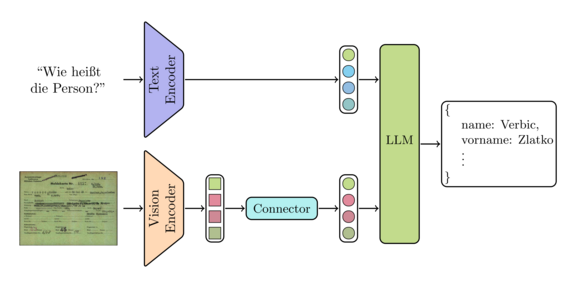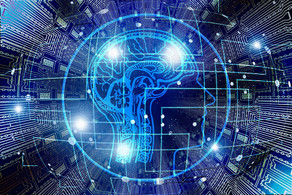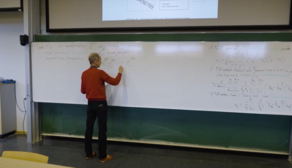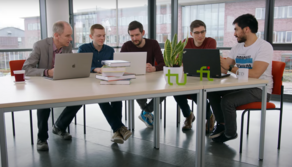Project group "AI meets Archives" begins the project phase.

Over the next two semesters, the group will independently develop a generative AI assistant to support archives in the indexing of mass files.
Archives store diverse and valuable data sets that form the basis for historical, legal and scientific research. These include, for example, civil status records such as birth and death registers. Historians in particular have an enormous interest in extracting information from such records, as it forms the basis for their research. Until now, it has been common practice to carry out the extraction by hand, which makes the process expensive and time-consuming.
The project group aims to speed up this process using modern AI methods. For the implementation, it uses modern end-to-end methods of (large) visual language models, which encode visual data in a feature space and then decode it together with a question from a (large) language model.
This makes a broad world knowledge usable for the process, as known from AI assistants such as ChatGPT.
The project is being carried out in close cooperation with the group for New History and Historical Migration Research at the University of Osnabrück using the example of compensation forms from the Second World War, the so-called CM1 files from the Arolsen Archive. These are considered particularly complicated by archivists and historians, which makes their success particularly valuable.








